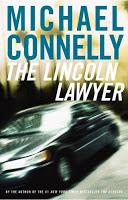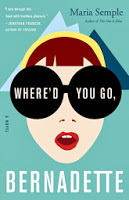I have affiliate relationships with Bookshop.org and Malaprop's Bookstore in beautiful Asheville, NC. I will earn a small commission at no additional cost to you if you purchase merchandise through links on my site. Read more on my affiliate page.
Hart Bonner is the son of a formerly prosperous plantation owner. Jennie Grant is his cousin’s biracial cook. In South Carolina in the early 1900s, she is considered a “Negro” and it is a felony for a white man to have “relations” with her. She and Hart carry on a secret affair for years though. The strain of the secret and outside influences take their toll on the relationship and things come to a head in 1918.
White man, black woman, South Carolina, 1918. Can you say trouble? I rarely read synopses of books if someone recommends them to me, so I didn’t know what I was getting into. When I figured out that this was the background of the story, my reading slowed to a crawl.
It wasn’t that the writing was bad or anything. I was just afraid to become attached to these characters when I knew that bad things had to be coming for them. In that place at that time, there would have been almost no limit to exactly how bad things could get. So I would read until I found myself caring for the characters, and then I would find something else to do. When I had gained a little distance again, I picked the book back up. This is not a good way for me to read and that’s probably the biggest factor behind the three stars.
This was so much more than just the obvious story. Looking inside this relationship was interesting and heartbreaking in an entirely different way than I had expected. Jennie and Hart truly love each other, but the secret meetings, the constant hiding and being careful, the sneaking out of Jennie’s house before dawn inevitably take their toll. Hart would just put their love out in the open but Jennie has more at stake and she begs him to leave things as they are. They fight and break up and come back together and love again and fight again in an endless struggle. What relationship could withstand that strain? In one scene, Jennie is sick in her cabin and Hart can’t even go visit her. In talking with his cousin, the cousin says, “If you were married.” Hart turns on him. “What do you mean, ‘if you were married’? Do you think that if that was [your wife:] out there, you’d be one bit more distraught that I am right now?” What a horrible situation to find yourself in. You’re the person with the most right to be at your loved one’s side, but you’re the last person the rules of society will allow to be there.
By the end of the book, Hart has acted in a selfless way that leaves Jennie feeling freer than she ever has. She’s still a black woman living in South Carolina in 1918, but she feels like she just might have a few more choices than she did before. I was left wondering if I would ever have the courage to do something I didn’t want in order to give a loved one more freedom. The answer is, it depends, but that’s not what Hart’s answer was.
If the setting or the synopsis or the conflicts appeal to you, go ahead and give this a try. I feel like I got a better understanding of how difficult life could be in such a prejudiced time and place.





